Richard Harris's Blog, page 2
June 11, 2023
Summer Reading 2023: NYT Fiction
If you have a digital subscription to The New York Times, then you can click here to read Kate Dwyer’s “24 Works of Fiction to Read This Summer.”
If, however, you do not, then I am choosing five titles to titillate your senses, arouse your curiosity, whet your appetite, and have you perked up about getting hot and heavy with reading this summer…in case you’re, you know, into that kind of thing. (Please note that I have NOT read any of these titles and have based my choices solely on their write-up in the Times or my knowledge of the author’s past work.)
1. Nothing Special, by Nicole Flattery
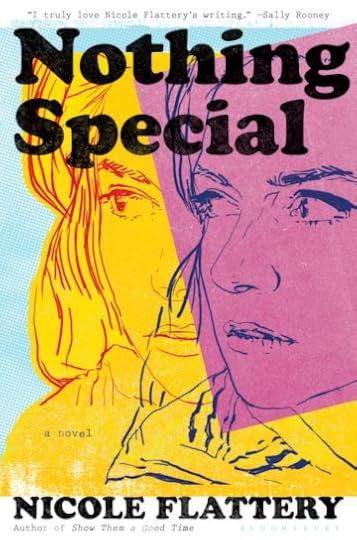
A disaffected and adrift teenager, Mae, becomes a transcriber for Andy Warhol as the artist records the Factory’s happenings as source material for a novel. Along with her fellow secretary Shelley, Mae grapples with vanity, commodification and fame.
2. Happiness Falls, by Angie Kim
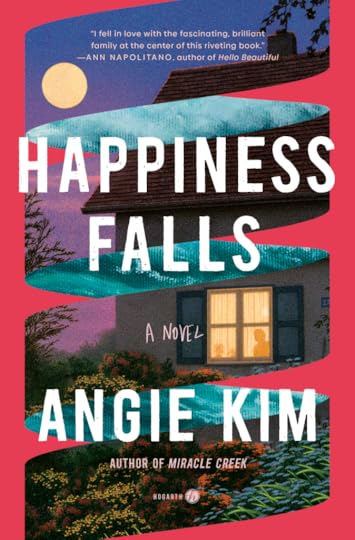
Kim, who won acclaim for her debut novel, “Miracle Creek,” follows a Korean American family in Virginia grappling with a crisis: When a teenager named Eugene — who has a rare genetic condition that prevents him from speaking — comes home from a walk covered in blood and without his father, the family must investigate the disappearance and find a way for Eugene to reveal what happened.
3. Crook Manifesto, by Colson Whitehead
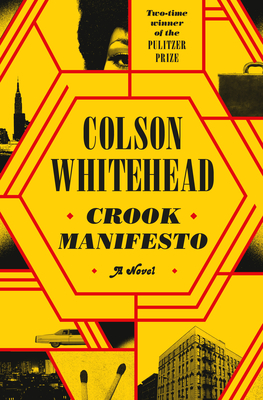
Ray Carney, the antihero of Whitehead’s 2021 novel “Harlem Shuffle,” is back, trying to keep his life on track: He’s stopped fencing stolen goods, and runs a thriving furniture store in Harlem. Things seem to be going according to plan until his daughter asks for Jackson 5 tickets, and a corrupt NYPD officer offers seats in exchange for a jewelry heist.
4. Loot, by Tania James
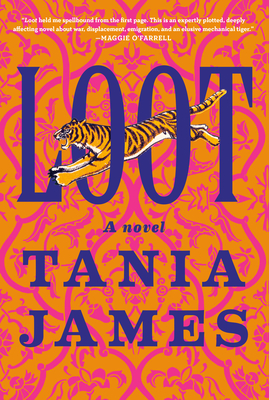
In James’s third novel, set in 18th-century India and France, a teenage artisan named Abbas is recruited by the ruler of Mysore, in southern India, to apprentice with a French clockmaker who is building an automaton of a tiger attacking a British soldier. Years later, after Mysore falls to the British, Abbas must steal back the artifact from a country estate.
5. Kairos, by Jenny Erpenbeck
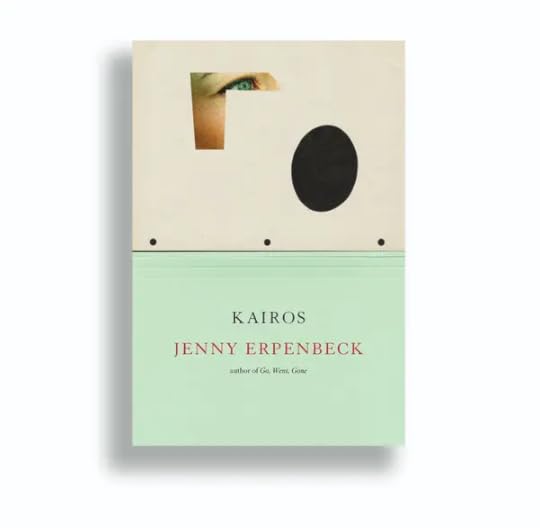
After the death of her former lover, a woman receives two cardboard boxes full of his possessions, prompting her to relive their relationship: It began when she was 19, he was 53, and 1980s Berlin was on the precipice of seismic change. The novel, which was translated by Michael Hofmann, is her sixth to be released in English; our critic Dwight Garner noted that this “profound and moving book has a subterranean force.”
June 3, 2023
Summer Reading 2023: The Mixed Bag Edition

A Heartfelt Bibliophile of Books
Summer. Sun. Sand. Suds. Salaciousness. Books.
Q. Which of the above words does NOT belong there?
If you fell into the oldest trap in the, er, book, then you are guilty of alliterative fever. Don’t worry. There’s a cure — and it ain’t more cowbell (close second). It’s books!
Kudos to Deborah Dundas (@debdundas), Books Editor @TorontoStar, for putting together an eclectic list of books to read this summer in your hammock…while not portaging, reupholstering your chesterfield, escaping a black/brown/grizzly/polar bear attack, or tapping for maple syrup (just kidding…it’s not winter, duh!).
Check out her article, “Summer is here, and the reading is amazing. These are the 20 best books to pile by your hammock,” for more details aboot (wink, wink) the list, which has offerings in the categories of Fiction, Non-fiction, Diversions, Mystery & True Crime, and Beach Reads.
Summer Reading: Mixed Bag

A Heartfelt Bibliophile of Books
Summer. Sun. Sand. Suds. Salaciousness. Books.
Q. Which of the above words does NOT belong there?
If you fell into the oldest trap in the, er, book, then you are guilty of alliterative fever. Don’t worry. There’s a cure — and it ain’t more cowbell (close second). It’s books!
Kudos to Deborah Dundas (@debdundas), Books Editor at the Toronto Star, for putting together an eclectic list of books to read this summer in your hammock…while not portaging, reupholstering your chesterfield, escaping a black/brown/grizzly/polar bear attack, or tapping for maple syrup (just kidding…it’s not winter, duh!).
Check out her article, “Summer is here, and the reading is amazing. These are the 20 best books to pile by your hammock,” for more details aboot (wink, wink) the list, which has offerings in the categories of Fiction, Non-fiction, Diversions, Mystery & True Crime, and Beach Reads.
April 11, 2023
Iceland: Fire & Ice & Books

As many people know, Canada has an intimate relationship with Iceland. Aside from that fact that we can obviously see the Land of Fire and Ice from our backyards in the Great White North, the country’s president, Guðni Thorlacius Jóhannesson, is married to a Canadian woman from Ontario, Eliza Reid.
However, did you also know that some Icelandic towns have a curfew for cats? Well, according to interestingfacts.com, there may be something else you didn’t know about those wild and crazy Icelanders: they love them some books! Per the aforementioned website:
Iceland is often called “the land of fire and ice,” a nickname describing two of the nation’s most prominent geological features — volcanoes and glaciers. But in recent years, the world’s 18th largest island has gotten a new reputation as a destination for readers and book lovers, and it’s because Iceland has more authors per capita than any other country in the world. It’s estimated that on an island with a population around 372,500 people, one in 10 will publish a book. There’s even a phrase in Icelandic that relates to the popularity of writing — “ad ganga med bok I maganum,” which roughly translates to “everyone gives birth to a book.” Many writers reside in the island’s capital city of Reykjavik, a major publishing hub that in 2011 was named a UNESCO City of Literature.
March 28, 2023
Why Artists Love Ireland So Much
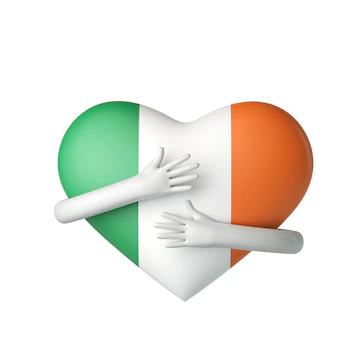
Short answer — taxes. Long answer — taxes and a new pilot program in which Ireland’s federal government supports artists financially.
So I have a friend. He’s a writer. Although he wasn’t born in Ireland, he’s got one of those flashy blue EU passports. Said friend decides years back to move on over to Ireland and keep pecking away at his Underwood. Aside from lovely stout beers and charming accents, Ireland also has something called the Artists Tax Exemption Scheme, which “allows earnings made by artists from the sale of original and creative works to be exempt from income tax. It applies to visual artists, sculptors, composers of music, and writers.”
However, the same aforementioned friend started running into trouble when he began selling a lot of books. Why? Because of the High Income Individuals Restriction which came into effect in 2007. Since then, the amount an artist can claim as tax exempt has been steadily declining. Today, the Artist Exemption stands at €40,000 anually, which, if you think about it, is still better than nothing.
But there’s another reason to love Ireland these days! (Wait, isn’t there always?) And that’s because “A government pilot program in Ireland is sending artists a weekly $350 check with no strings attached, allowing them to concentrate on creative pursuits without the pressures of a day job.”
I says pardon.
Per The New York Times, “Ireland’s program stands out because of its rigor. Officials will study the 2,000 recipients’ finances, work patterns and well-being and compare them with those of a control group of artists getting no payments.”
March 3, 2023
TPL Book Sanctuary Collection

There is a reason why I am a proud supporter of the Toronto Public Library (TPL), the busiest urban public library system in the world. Yes, you read that correctly. With its 4 million branch visits and 33.3 million visits to TPL online platforms in 2021, it is extremely meaningful on a worldwide scale that the TPL has established The Book Sanctuary Collection, which “represents books that have been challenged, censored or removed from a public library or school in North America. The 50 adult, teen and children’s books in our collection are available for browsing and borrowing in our branches and online.”
Among the 50 books on this TPL-protected list: The Handmaid’s Tale by Margaret Atwood (profanity, sexual overtones, being anti-religious, 2SLGTQ+ characters and for being morally bankrupt), Atonement by Ian McEwan (poor grammar and sentence structure), The Bluest Eye by Toni Morrison (portrayal of childhood sexual abuse), The Diary of Anne Frank (Anne’s discussion of her sexuality and genitalia), and The Glass Castle by Jeannette Walls (sexual content and situations dealing with alcoholism and abuse).
I’d like to rant and rave about the idiots who tried so hard to have these works of art excised from our libraries and education systems, but in truth I’d rather use my time to read a book. Perhaps one of the books listed above.
P.S. For all the bibliophiles out there, I highly recommend two feel-good books about books — and most definitely for bookish bookies — by Alberto Manguel that are not banned (to my knowledge) in any library: A History of Reading and The Library at Night. Oh, and for all the other bibliolaters and bibliophages, be sure to check out this list of wicked-awesome book-related words.
February 26, 2023
The Book of Eels

This past month, I read Swedish author Patrik Svensson’s The Book of Eels: Our Enduring Fascination with the Most Mysterious Creature in the Natural World along with my fellow book club members. Strangely enough, not everyone in my book club thought it would literally be about eels. Well, it is and it was. In fact, Svensson has accomplished something I never thought I would say: He has written an enthralling, highly informative, and (dare I say) enticing book about the snake-like fish you (possibly/probably) find gross.
What makes the book so special is not just the facts about eels that will kinda/sorta blow your mind; it’s also the father-son story behind every chapter and the thought-provoking inclusion of, among other things, politics, philosophy religion, psychology, and literature. Or, as the publisher puts it: “Blending memoir and nature writing, Svensson’s journey to understand the eel becomes an exploration of the human condition that delves into overarching issues about our roots and destiny, both as humans and as animals, and, ultimately, how to handle the biggest question of all: death.”
Oh, and in case you were wondering, of the ten book club members who read this book, every single person gave it a thumbs-up, something we have done fewer times in fourteen years together than you can count on one hand.
February 24, 2023
The Life Sentences of Rik McWhinney

Although people sometimes misquote Winston Churchill as having said that we can judge the level of civilization in a society by the way it treats its prisoners, it was actually Fyodor Dostoyevsky who said: “The degree of civilization in a society is revealed by entering its prisons.” What Churchill, in fact, said is that a society’s attitude to its prisoners, that is, its “criminals,” is the measure of “the stored up strength of a nation.”
If you put stock in what Dostoyevsky believed about prisons being a reflection of a society’s level of civilization, then we have a serious problem here in Canada. For those interested in learning what life is actually like behind bars (at least what it’s like in Canada), you should give The Life Sentences of Rik McWhinney a read. Jason Demers, the book’s editor and an assistant professor at the University of Regina, has done an exceptional job of putting together a book about a Canadian man who spent more than three decades in several prisons across the country. Per the publisher’s description of the book:
“Rik McWhinney spent thirty-four years and four months in Canada’s federal penitentiaries–sixteen of those in solitary confinement. His incarceration began in the 1970s, as a system-wide war was raging over the implementation of penal reforms…The Life Sentences of Rik McWhinney collects his poetry, essays, grievance forms, letters, and interviews to provide readers with insight into the everyday life of incarcerated individuals, amplifying the lives and voices of a demographic that society would rather ignore. McWhinney relays the horrors of solitary confinement and provides a vivid account of the violence and psychological turmoil that he endured while incarcerated.”
While The Life Sentences of Rik McWhinney is not for the faint-of-heart reader, it is nonetheless important reading and will certainly teach you a thing or two about a thing or two. For, as the great Barbara Tuchman once wrote, “Books are the carriers of civilization. Without books, history is silent, literature dumb, science crippled, thought and speculation at a standstill. Without books, the development of civilization would have been impossible.”
January 19, 2023
Ontario Arts Council Literary Grant

Yes, the cheque was in the mail. Literally. For a literary grant! My profound thanks to the Ontario Arts Council (OAC) for believing in this old dog. It was, umm, not my first kick at the can. However, I am pleased to announce that an upcoming novel of mine, Perfected in Love, was the recipient of an @ONArtsCouncil literary grant last week. Aside from the financial cushion, it means so much more than that — despite what writers may claim, they still want vindication for all the time and soul-crushing effort they put into their little engine that could. For me, this grant is particularly meaningful because it completes the Canadian literary grant trifecta for me; I have now received literary grants from the Toronto Arts Council, the Ontario Arts Council, and the Canada Council for the Arts for three different works of my fiction. Thank you, Ontario and Ontarians, for supporting your artists. #ArtsAddValue

While I can verify that it’s not easy to get an OAC literary grant, it certainly does feel nice when you do receive one, even if you did have to try for over a decade (#finally). Cough….cough cough cough. I, like most of us, enjoy complaining about where our tax dollars mysteriously disappear to every day. Well, I can now confidently say that at least part of that friendly 13% HST goes to support the Ontario Arts Council and the myriad programs they support through grants in the fields of Dance, Literature, Media Arts, Multi and Inter-Arts, Music, Theatre, and Visual Arts.
Furthermore, they also offer specific assistance to a wide range of Ontarians, including Artists of Colour, Deaf Artists and Artists with Disabilities, Francophone Artists, Indigenous Artists, New Generation Artists, and Artists Living in Regions outside of Toronto.
Thank you once again, OAC, for all that you do to lend artists in this great province a helping hand. It does not go unnoticed or unappreciated.
December 27, 2022
Nothing to Envy: Ordinary Lives in North Korea
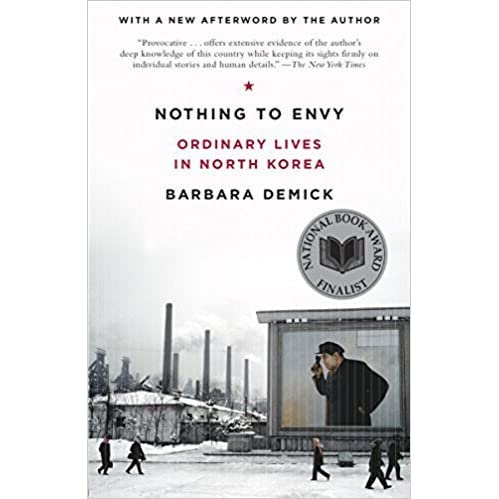
A great title for a great book. Although the title (presumably) comes from one of the many propaganda signs found ubiquitously around North Korea (세상에 부럼 없어라 – We have nothing to envy in the world.), it could very well be a welcome sign at the “international” airport in Pyongyang, the country’s capital city.
The author of Nothing to Envy: Ordinary Lives in North Korea, award-winning journalist Barbara Demick, does a commendable job of getting six North Korean defectors from in and around the Chongjin (청진) area to open up about their lives, the lives of their family members and friends, and the lives of those around them while they were citizens of the Hermit Kingdom 2.0 and then after they arrive in South Korea. Even the most uninterested non-Koreaphiles will be turning the page and wanting more because it’s no different than reading a (real-life) modern-day version of Orwell’s 1984.
What really sets this book apart is the way the author constructs the narrative of the North Koreans who have escaped the ravages of life under Kim Il-sung and subsequently under Kim Jong-il. The fancy way of putting it is that Demick combines a Greek approach to tragedy through the predicaments these people face and the weaknesses which hold them back from successfully overcoming these challenges with a more modern tradition of making them human, fettered by flaws that are relatable and evoke anguish-filled empathy, with irony dripping over it all at pretty much every turn.
We want to scream out loud as these victims of a state-run campaign to destroy them in every facet of their lives keep telling themselves how great Kim Il-sung is, how great life is in North Korea, and how great everything will be once the rest of the world catches up to them technologically, politically and morally.
Even as people are dropping dead all around them during the Great Famine of the 1990s, it’s “Let’s stay strong on this Arduous March!” Just go! we want to tell these people. Get the hell out of Dodge! Cross the bloody Tumen River and then find a way — any way — to South Korea.
The most memorable revelations in this book are simple everyday moments that make you, the reader, pause for a few heartbreaking seconds and go, Holy shit. There really is a hell on Earth. For me, some of these moments included a woman collapsing as she entered China, falling to the ground, and discovering that the Chinese feed their dogs better, more nutritious food than the North Korean government did its own citizens; a highly educated defector getting to South Korea, reading 1984, and wondering how Orwell nailed it so perfectly years before this nightmare unfolded in North Korea; and hearing Kim Jong-il’s real voice through an illegal TV broadcast and realizing exactly what the Japanese did on August 15, 1945 — that small, tiny, weak voice was what we cowered under for a lifetime?
If you like learning and you enjoy a good ol’ tragedy, you will love this book. It is replete with so many of the most human of traits: through its pages we find first love, we please our parents and strive for the very best, we work hard and have big dreams of success and children and food on the table — and then we have it all obliterated. At the very least, it’s proof that the best of humanity does triumph in the face of unimaginable adversity. And while love may not always conquer every foe — real or imagined — it does propel us to new heights, it does inspire us to achieve the unachievable, and even when it does die a sad, lonely death, we are left with an enduring feeling that we are better people for having loved at all.



